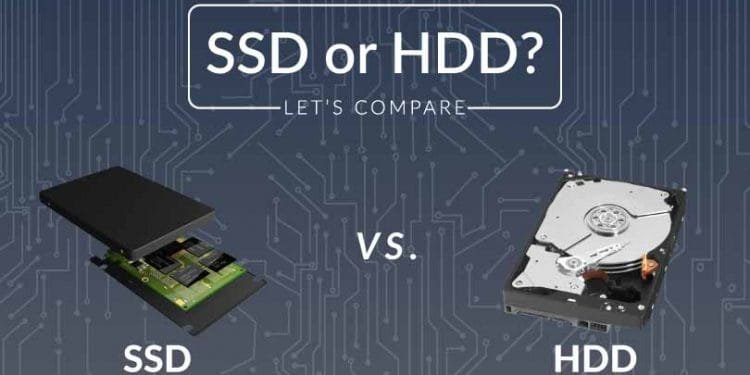A computer’s storage is one of the most important aspects to consider when purchasing a new device. There are two main types of storage: solid-state drive (SSD) and hard disk drive (HDD). Both have their pros and cons, so it’s important to know the difference before making a decision. Here’s a quick guide to SSD vs HDD.
What is an SSD?
An SSD is a type of storage that uses flash memory to store data. Flash memory is a type of non-volatile memory, which means that it doesn’t require power to maintain the data stored in it. This makes SSDs much faster than HDDs, as HDDs need time to spin up to speed before they can start reading or writing data.
What is an HDD?
An HDD is a type of storage that uses spinning disks (aka platters) to store data. Data is written to and read from these disks by a read/write head that moves back and forth on an arm. HDDs are cheaper than SSDs, but they’re also slower and use more power.
SSDs vs HDDs (Major Comparison)
Capacity
One of the most important factors to consider when choosing a storage device is capacity. Solid state drives typically have lower capacities than hard disk drives, with most SSDs topping out at around 4TB. Hard disk drives, on the other hand, can have much higher capacities, with some models offering up to 16TB of storage. So, if you need to store a lot of data, an HDD is probably a better option.
Speed
When it comes to speed, the best SSD cards are in a league of their own. Thanks to their lack of moving parts, solid state drives can access data much faster than hard disk drives. This makes them ideal for use in applications where speed is critical, such as video editing or gaming. If you need fast storage, an SSD is definitely the way to go.
Price
One area where HDDs have a clear advantage over SSDs is price. Hard disk drives are significantly cheaper per gigabyte than solid state drives, so if cost is a major consideration for you, an HDD is probably the better option. That being said, SSD prices have been dropping steadily in recent years, so they may eventually become more affordable for budget-conscious shoppers.
Read more: Launch Your Own IDO Launchpad
Reliability
Another advantage of SSDs over HDDs is reliability. Because SSDs do not have any moving parts, they are less likely to fail than HDDs. This means that you can rely on an SSD to store your data safely and securely for many years to come.
Durability
Different types of hard drives are more durable than SSDs because they don’t have any moving parts. This means they’re less likely to be damaged if you drop your computer or if it’s jostled around too much. If you’re worried about your storage drive being damaged, then an HDD is the way to go.
SSD vs HDD Overview (Who is the Winner)
When it comes to computer storage, there are two main options: solid state drives (SSD) and hard disk drives (HDD). Both have their strengths and weaknesses. SSDs are faster in terms of data access and power consumption, but they are also more expensive and have limited storage capacities. HDDs, on the other hand, tend to be cheaper and offer more storage space, but they are slower and use more power. So, who is the winner? It ultimately depends on your specific needs and preferences. If speed and power efficiency are important factors for you, an SSD may be worth the investment. But if budget and storage capacity are your top concerns, an HDD may be the better choice. Ultimately, there is no one-size-fits-all solution – it all depends on your unique requirements. Happy researching!
Final Say
There’s no clear winner when it comes to SSDs vs HDDs. It ultimately comes down to personal preference and what’s important to you. If you need a lot of storage space and are on a budget, then an HDD is the way to go. But if speed is important to you, then an SSD is the better choice.

















































